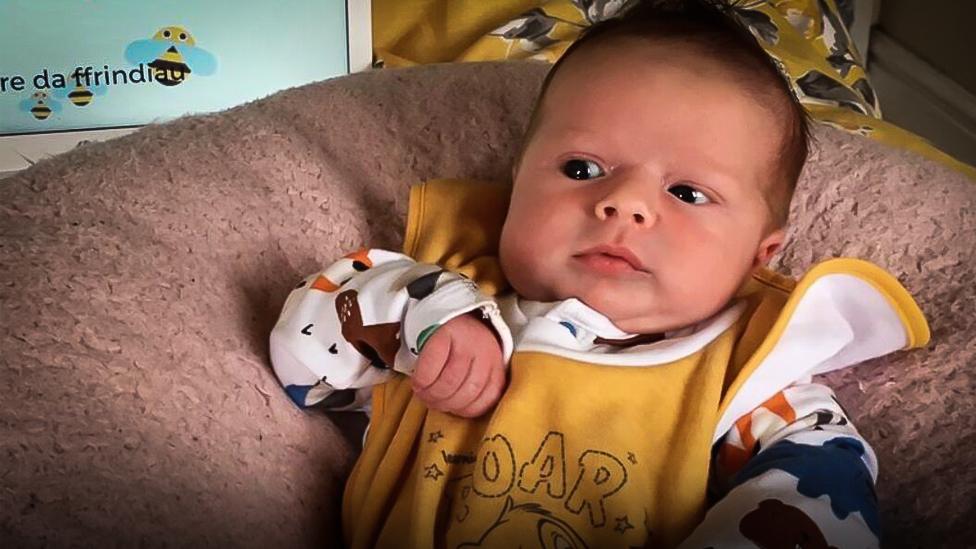Bestsi Cadwaldr revises post-natal visits ban following legal action
- Published
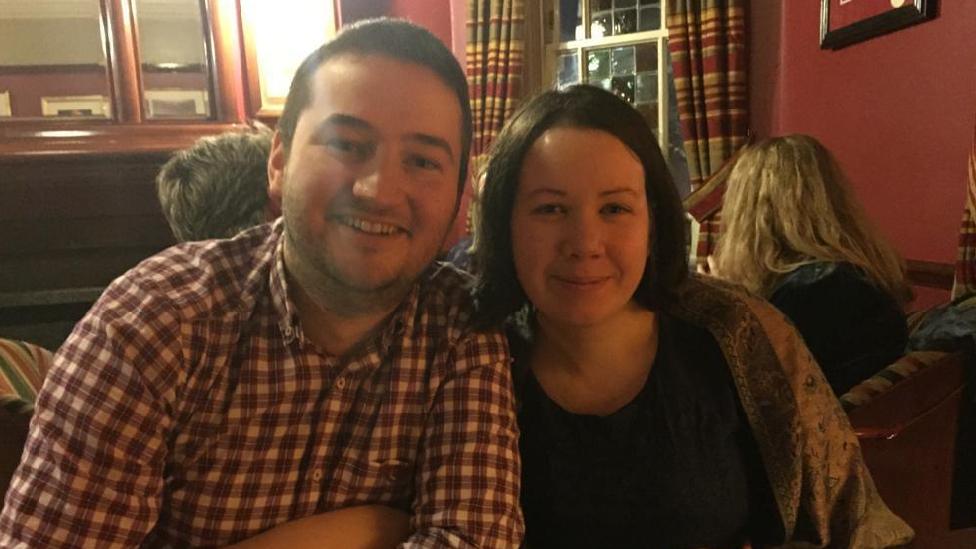
Lucy Williams and her partner Lorin Davies have sent a legal letter as the first step before an application for judicial review of the health board's policy
A health board's ban on post-natal maternity ward visits has been revised but its rules still differ from other boards in Wales.
It follows legal action by a couple and a charity, said Betsi Cadwaladr University Health Board's (BCUHB) full ban was a "human rights violation".
Lucy Williams, 34, and Lorin Davies, 35, from Conwy want assurance from BCUHB they can be together after a difficult birth with their first child.
BCUHB has not commented on proceedings.
The board is now offering one hour daily appointment visits for maternity in-patient visiting - but other health boards in Wales do not have this restriction.
Current policies surrounding hospital visits are decided by individual health boards.
The pre-action protocol letter is joined by charity Birthrights, which is supporting a number of families affected by the board's policy of - up until Thursday - banning post-natal visitors except in exceptional circumstances.
It is the first step before an application for judicial review of the health board's policy.
The health board has not yet responded to the letter, according to the charity, but it has 14 days to reply.
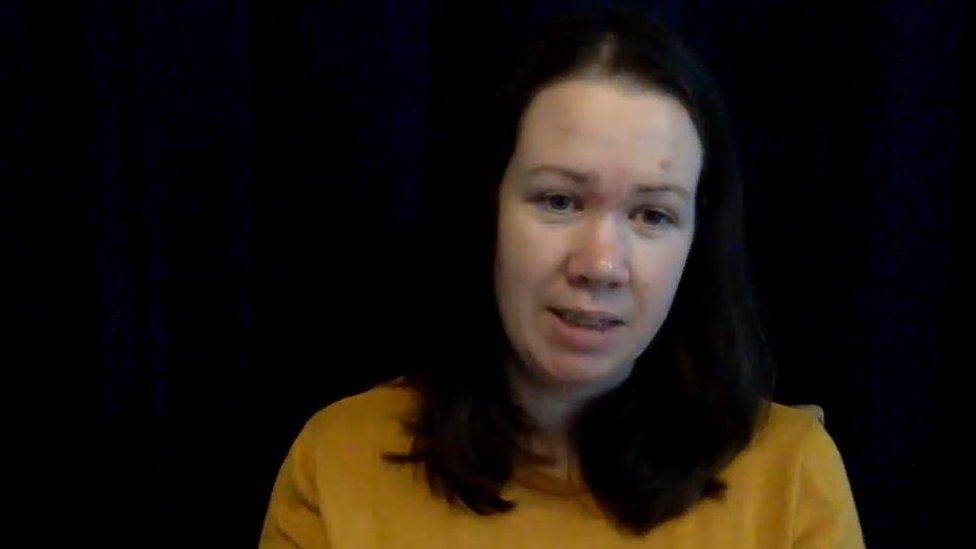
Dr Williams said she was thinking of other mothers who are due more imminently
Dr Williams, a criminologist and historian, said she felt "cautiously pleased" at the change to BCUHB's "cruelly restrictive" maternity visiting policy.
However, she added that hoped the health board would now make reviewing the rest of their policy a "matter of urgency".
"With restrictions easing throughout the country it shouldn't be easier to spend an afternoon in Marks and Spencer than on a maternity ward," she said.
"Women deserve access to the practical and emotional support of their partners throughout labour, birth, and those first early days, partners have a right to be with their new-born babies."
Under the previous BCUHB in-patient maternity visiting policy, Dr Williams said she felt "very anxious at the prospect" of giving birth at Ysbyty Gwynedd in December, with her husband unable to visit while she and her baby were on the maternity ward.
She felt her freedom to make the best choice for her delivery was constrained by considerations of how long her husband will be able to stay.
The couple referred to the previous BCUHB policy as a breach of the rights of service under article eight of the European Convention on Human Rights, external - the right for respect for family life - they said the separation of either parent from a new-born child constitutes a "particularly severe interference".
They claimed the separation was a breach of the guidance from November which said that visiting could be facilitated with the agreement of the nurse in charge of the ward.
'Depriving women of critical support'
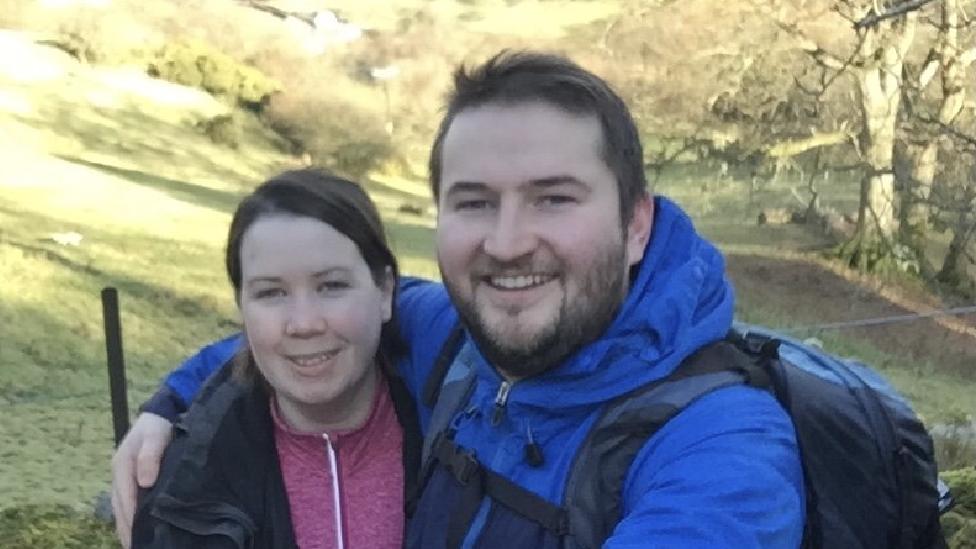
The couple, who are expecting their second child in December, say the rules do not line up with the Covid rates in the area
"No expectant parents want to be thinking about anything other than safe arrival of their baby at a time like this, but the anxiety and distress caused by so many families by BCUHB's draconian visiting policy left us feeling compelled to act," Ms Williams said.
She added the health board was "risk averse to the point of recklessness, not following the science, not learning from other health boards, and most of all forgetting to put the needs of women and their children first."
She said talks with the health board have not been very constructive and the hour allowance is the "bare minimum" - even though it's now considered safe to visit shops and hairdressers, socialise with friends, visit indoor attractions - but acknowledges it is a step forward.
"Other trust and health boards are not enforcing such cruel measures and still have Covid under control," she said.
'No justification'
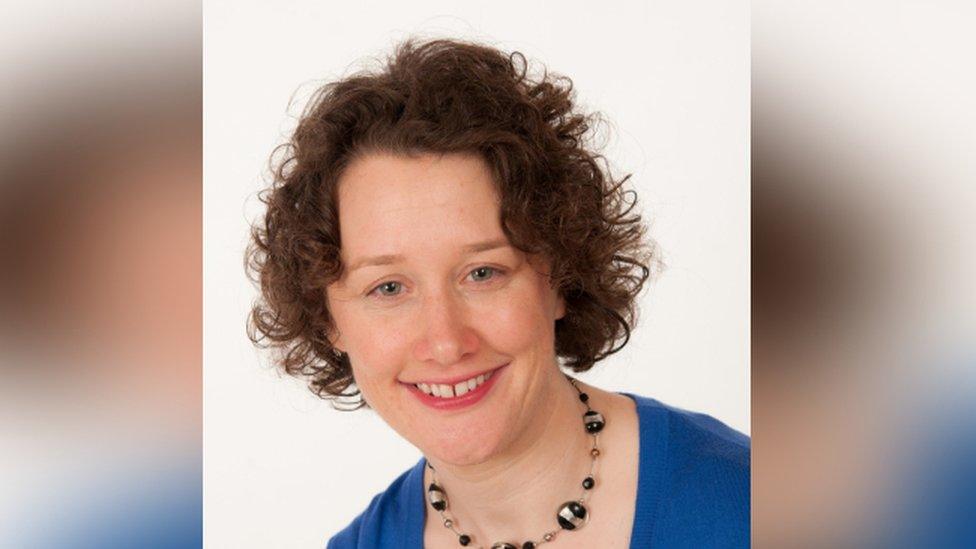
Maria Booker, of charity Birthrights, said the health board needs to reconsider policy given that people in Wales can now socialise more freely
Maria Booker, a Birthrights director, said the introduction of time slots is a "welcome step" but there needs to be justification as to why it varies from other health boards.
"Excluding partners from maternity services after birth is draconian and disproportionate. We are delighted that Betsi Cadwaladr has belatedly recognised this," said Ms Booker.
She said the charity welcomed the change in policy but they also look forward to "a full explanation" about "why remaining visiting restrictions in maternity services are necessary when individuals can go to a pub, a restaurant or mix indoors with other households".
Leigh Day solicitor Sophie Wells, said it was "perverse" that restrictions have lifted to allow socialising but pregnant people spend much of their labour and recovery alone whilst caring for a new baby.
"We are very pleased that Betsi Cadwaladr has acted so quickly following receipt of the letter before action," she said.
"Although we will carefully consider the finer details, their new policy indicates a welcome step forward."

The couple are due to have their second child at Ysbyty Gwynedd in December
Gill Harris, deputy chief executive and executive director of nursing and midwifery for the health board, said: "Although we cannot specifically comment on any legal proceedings, we are currently looking at easing our visiting arrangements to include access by appointment onto our in - patient antenatal and postnatal wards across all three maternity units in north Wales.
"We also ask anyone with concerns to speak with your midwife about your specific needs.
"We will continue to monitor this policy and any updates for visiting arrangements will be available on our website."
- Published2 May 2021
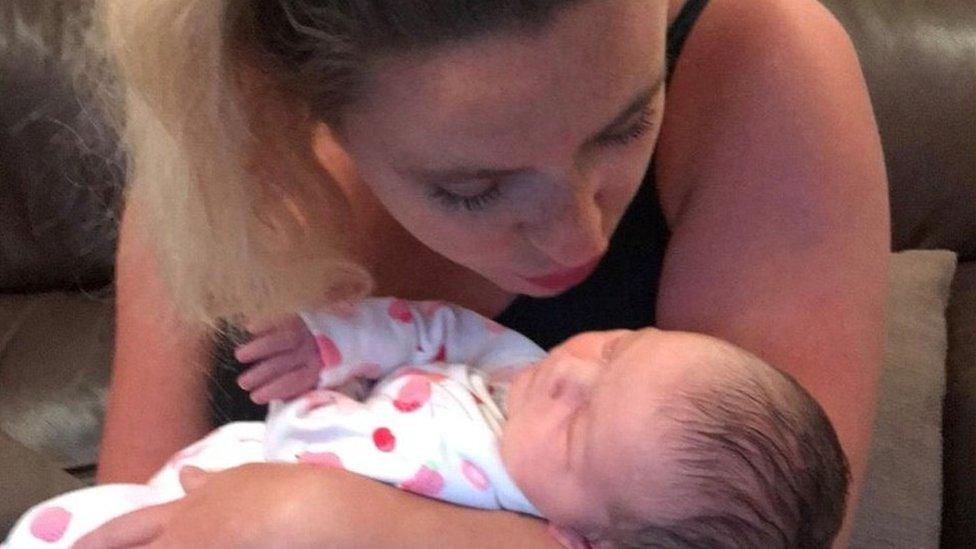
- Published30 November 2020
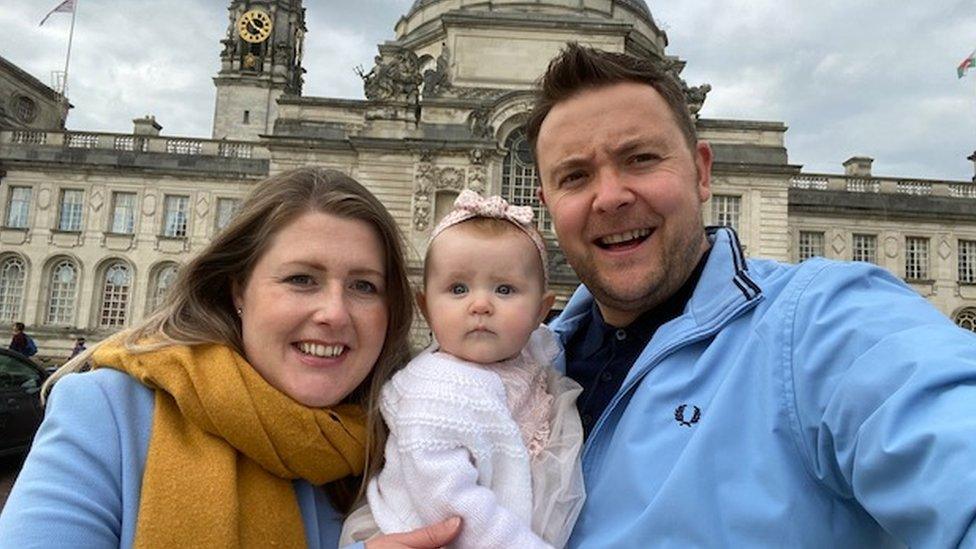
- Published4 May 2020
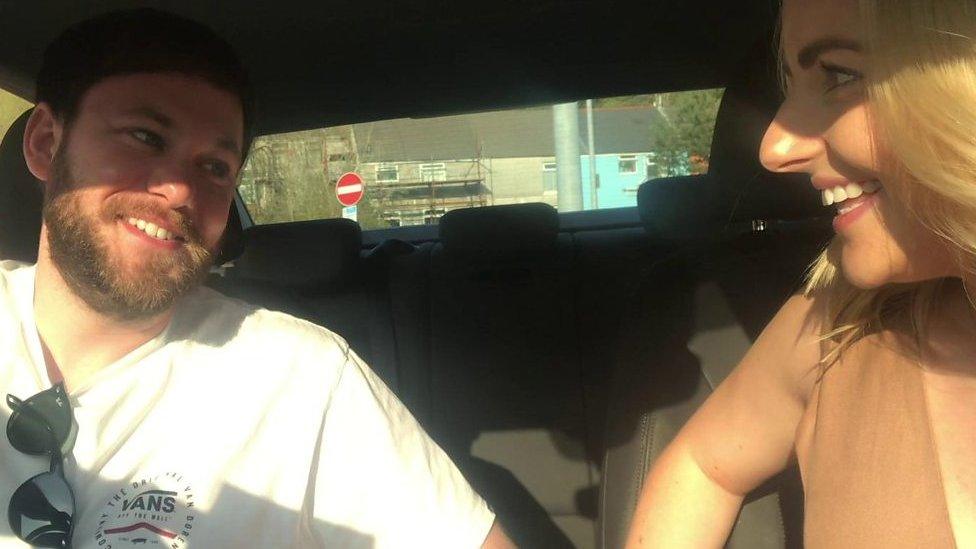
- Published1 May 2020
